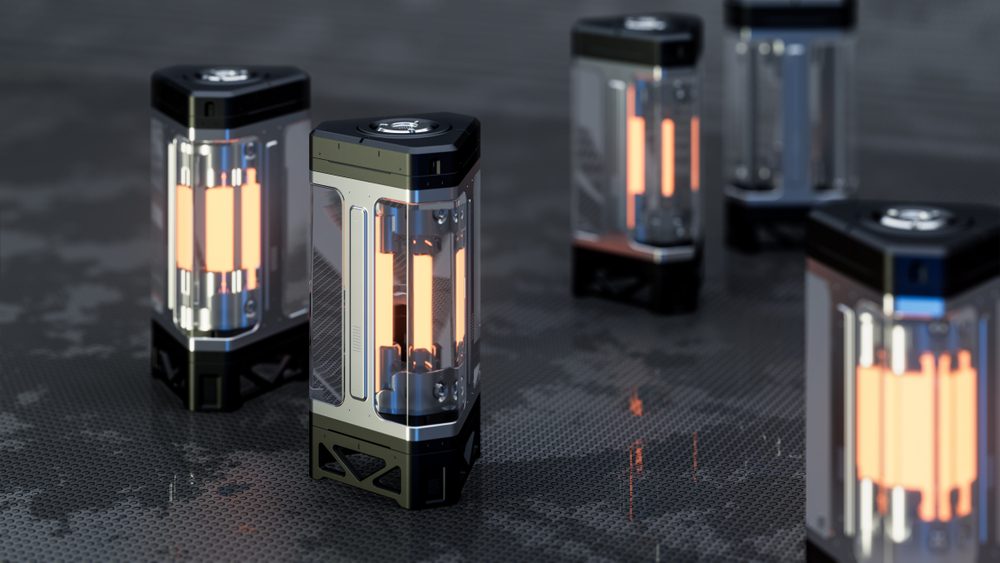Quantum Batteries: The Next Frontier in Energy Storage with Time Crystals
Innovations and Initiatives Innovations and InitiativesPosted by NewAdmin on 2025-02-10 08:46:53 |
Share: Facebook | Twitter | Whatsapp | Linkedin Visits: 20

The field of energy storage is experiencing a transformative shift with the introduction of quantum batteries. Recent research led by Federico Carollo, Associate Professor at the Research Centre for Fluid and Complex Systems at Coventry University, has highlighted the potential role of time crystals in advancing these next-generation energy storage systems.
Time crystals differ from conventional crystals like diamonds or quartz, which have a fixed atomic structure that repeats in space. Instead, time crystals exhibit a unique characteristic: their patterns repeat over time, continuously oscillating without settling into equilibrium. This dynamic behavior has made time crystals a subject of growing interest, particularly in quantum computing, quantum sensors, and now quantum batteries.
Quantum batteries, leveraging quantum mechanical principles, promise to offer faster and more efficient energy storage and transfer than traditional batteries. Carollo and his team's research focused on the thermodynamics of time crystals, which is crucial for understanding how energy flows and is stored within these systems. Their findings indicate that time crystals could significantly improve the energy storage capacity and efficiency of quantum batteries.
The team utilized advanced theoretical and mathematical models to examine the non-equilibrium states of time crystals and their potential for energy storage. Initially, the researchers aimed to explore how coupled time crystals might function in a quantum engine but soon realized their model was better suited for quantum battery applications. Their research demonstrated that coupled time crystal systems could store energy more effectively and in larger quantities than stationary systems, unlocking new possibilities for powering nanoscale devices.
Thermodynamics plays a critical role in optimizing quantum batteries, as it determines the energy resources needed to sustain these systems and their overall efficiency. Carollo's research provides essential insights into how energy flows within time crystals and how they can be enhanced for practical applications.
The potential for quantum batteries is vast, with implications for renewable energy storage, quantum computing, and medical devices. If successfully developed, these batteries could revolutionize energy storage, offering faster charging, better energy retention, and enhanced performance compared to classical solutions. Carollo emphasized the importance of collaboration between theorists, experimentalists, and industry to address the challenges of applying time crystals in real-world technology, signaling a promising future for quantum batteries.
Search
Categories
Recent News
- Bihar's Top Cop Opens Doors to Public Grievances
- Hyderabad Gears Up for Presidential Visit: Traffic Diversions Announced
- Hyderabad Expressway Gridlock: Three-Car Pile-Up Causes Chaos
- Hyderabad Gears Up: Security Measures for Presidential Visit
- Hyderabad's Rs 23 Lakh Scam: Fake Trading App Dupes Investors
- Pinkathon Hyderabad: Empowering Women, One Step at a Time
- Hyderabad's Drug Supply Chain Unravelled
- Hyderabad's New Year's Eve: Safety Meets Celebration
Popular News
- Navigating IPO Market Dynamics Amid Volatility and Regulatory Changes
- Innovative Green Practices and Environmental Initiative
- Massive Worldwide Microsoft Outage Disrupts Multiple Sectors
- తెలుగుదేశం పార్టీ - పేదరికాన్ని నిర్మూలించడంలో వాగ్దానం
- Universities Embrace Remote Learning Technologies Amidst Ongoing Pandemic